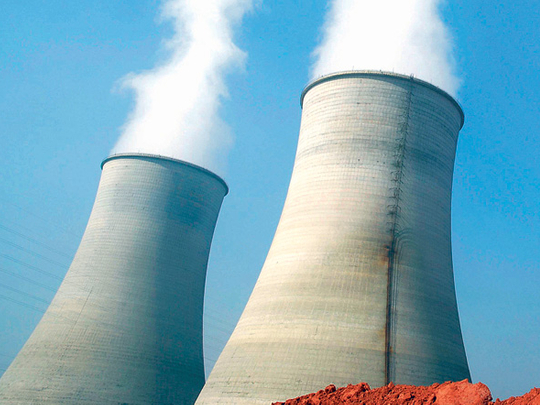
Abu Dhabi: The UAE-Russian Federation peaceful nuclear energy agreement, which was signed on Monday at the foreign ministry is deemed a legal framework for supplying nuclear fuel services to the UAE and in line with the country’s policy on the development of a national nuclear energy programme.
This was stated by Hamad Al Ka’abi, UAE’s permanent representative to the International Atomic Energy Agency and board member of Federal Authority for Nuclear Regulation (FANR).
“The atomic cooperation could expand to build nuclear plants, or to uranium exploration,” Al Ka’abi remarked, adding that “there would be additional agreements.”
Sergey Kirienko, director general of the Russian State Nuclear Energy Corporation ‘Rosatom’, said that both countries have common views pertaining to atomic power with Russia’s Tenex supplying natural uranium and enrichment services to the UAE civil nuclear programme.
Kirienko considers the agreement as “creating the legislative foundation for further business cooperation between Enec and Tenex to supply the first nuclear power plant at Barakah with natural uranium, conversion and enrichment services.”
The agreement facilitates the transfer of information, technology, equipment and nuclear material.
According to FANR, Abu Dhabi targets 7 per cent renewable energy electric generation capacity by 2020 (1500 MW) while Dubai’s target is 5 per cent renewable energy by 2030 (1000 MW).
Dr Sultan Al Jaber, CEO of Masdar, said the UAE aims to produce 7 per cent of its electricity, for example, through alternative energy or renewables by 2020, 25 per cent from nuclear energy and the remaining 68 per cent from gas,
“Should we use this mix of power sources, we will be saving from the period 2012-2030 more than $15 billion,” said Al Jaber.
FANR granted the licence to start working on the plant in Baraka in the Western Region in mid-July 2012. In 2012, it signed deals with six companies to supply uranium over a 15-year period. These companies were Conver Dyn of the US, Canada’s Uranium One, Urenco and Rio Tinto of the UK, Russia’s Tenex and France’s Areva. These companies will provide enriched uranium to Kepco Nuclear Fuels, which will then make the fuel assemblies for the four planned units.
Looking at implication on costs of oil when turning to nuclear and renewable energies has driven the UAE to weigh up its options over its future energy mix, Al Jaber pointed out.
“Leveraging decades of expertise gained as exporters of conventional energy, we are now poised to be exporters of clean, renewable energy,” said Al Jaber, adding that renewable energy is very much critical to UAE’s long-term economic diversification.
He added that though Abu Dhabi has huge reserves to proceed with production for more than a century, it started looking for alternatives to traditional energy to be integrated with available sources to meet future needs and to satisfy demand.












